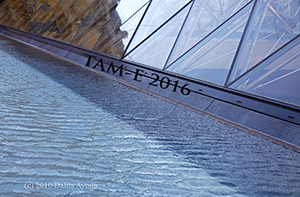This paper presents an analysis of the aspectual system of Sanzhi Dargwa (Nakh-Daghestanian, Russia). Sanzhi Dargwa encodes viewpoint aspect in two ways: through stem allomorphy and through inflection. Most verbs come as aspectual pairs in the sense that a verbal lexeme generally has an imperfective and a perfective stem (Table 1). The two stems are formally related via processes such as ablaut or infixation, but it is not possible to determine a direction of derivation. Furthermore, inflection conflates aspect and tense in a rich number of synthetic and analytic verb forms.
The two systems are formally independent and thus combine, which leads to intriguing interactions and to restrictions on which aspectual stem can inflect for which verb form. The central aim of the paper is to account for the meaning of the complex forms as being composed of the meanings of the stems and the semantics of the verb forms and explain the constraints that inhibit certain combinations. In order to do this, I will adopt the typology of viewpoint aspect presented in Bohnemeyer (1998) and Boland (2006) who distinguish the following types of basic aspectual categories: prospective, ingressive, progressive, continuative, egressive, completive, perfect, resultative, perfective (and imperfective as a higher-order category that comprises progressive, and continuative). For each available combination of aspectual stem type and inflectional form, I will determine the aspectual category (or categories) and subsequently explain the composition of the resulting complex aspectual category. For instance, the present progressive (1) is formed by adding the converbal suffix -ul / -un to the imperfective stem and encliticizing a person marker (first and second person) or the copula (third person). This form is unavailable for perfective stems.
The data analyzed in this talk originate from extensive fieldwork in Daghestan since 2012.
- Poster

 PDF version
PDF version
